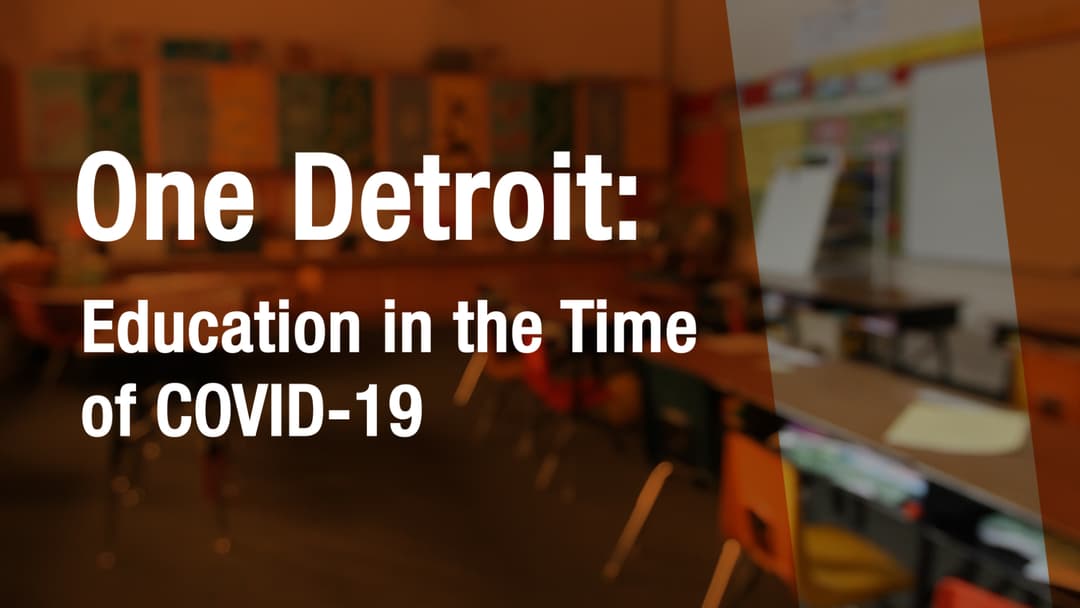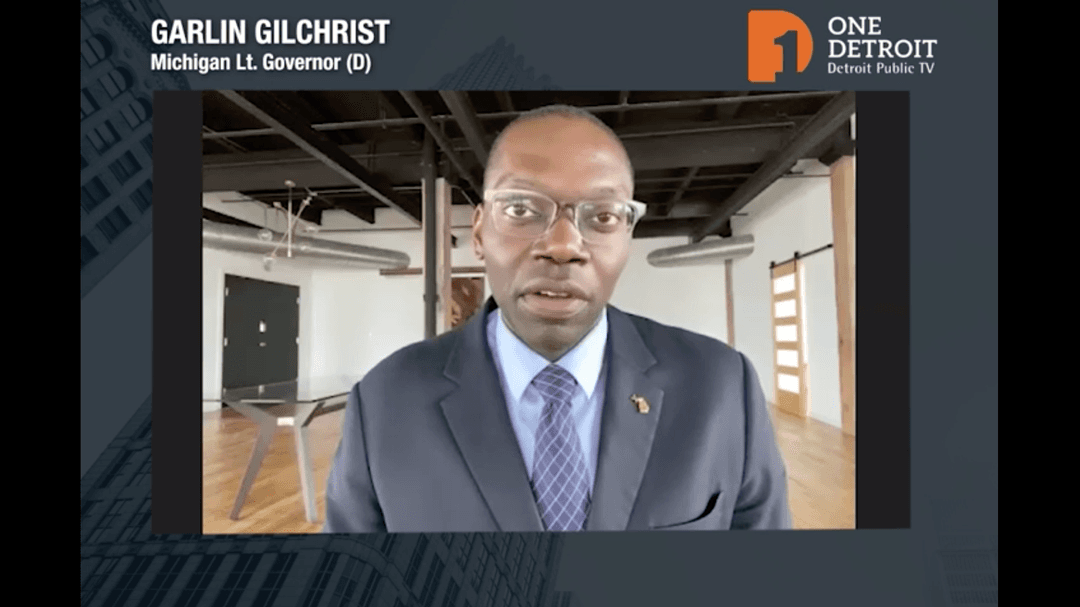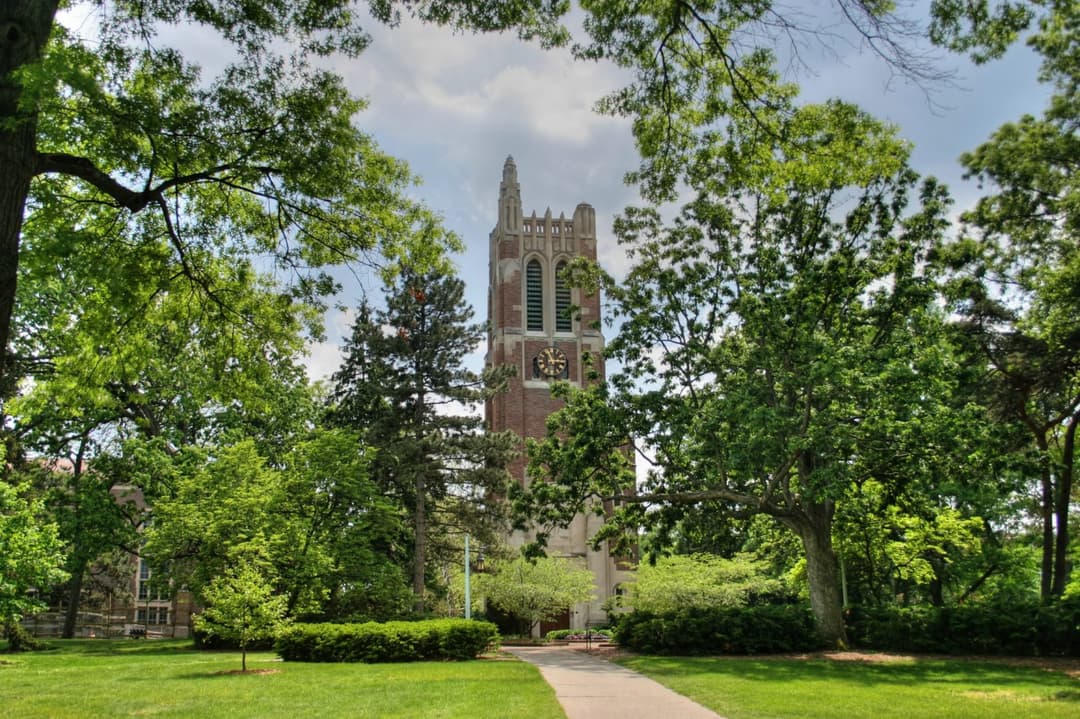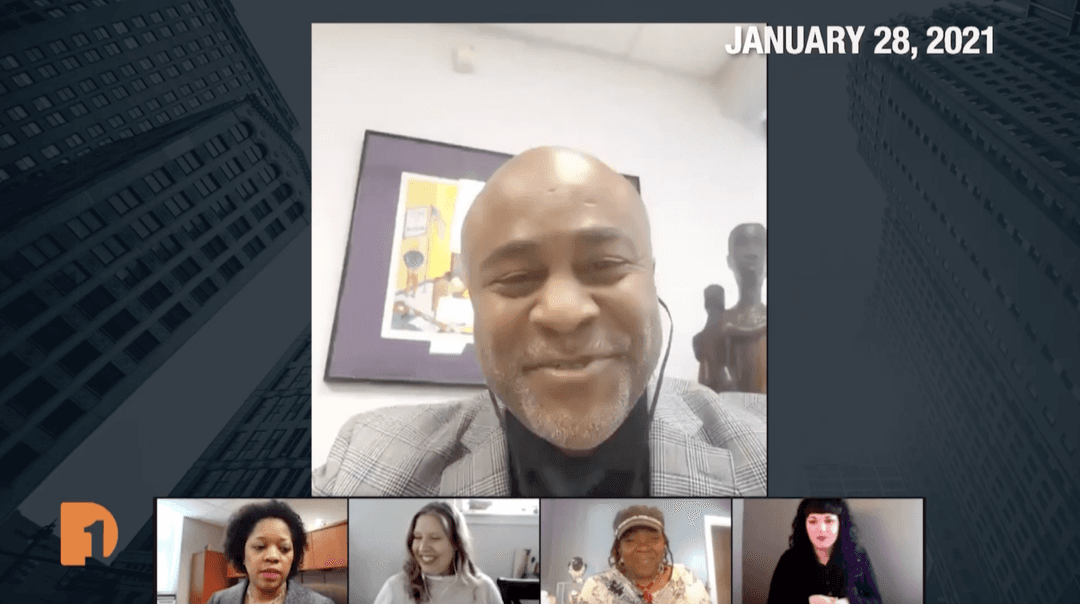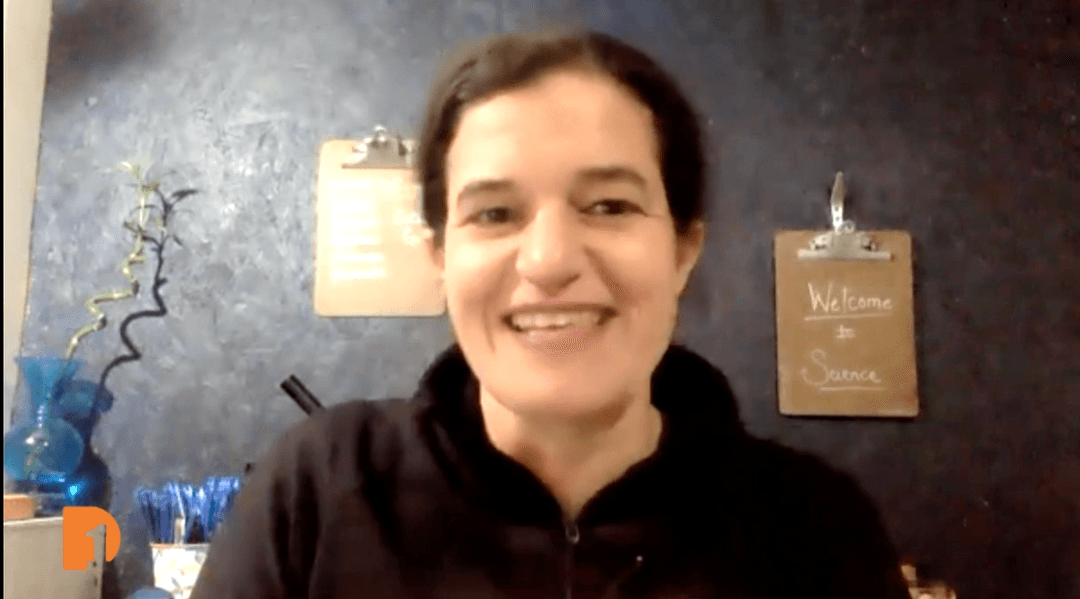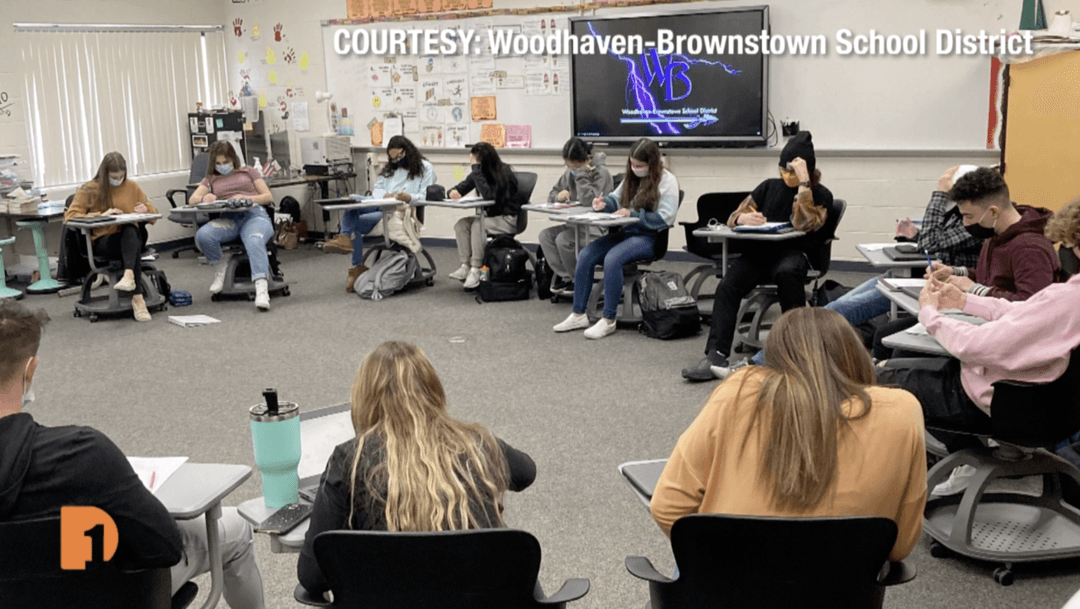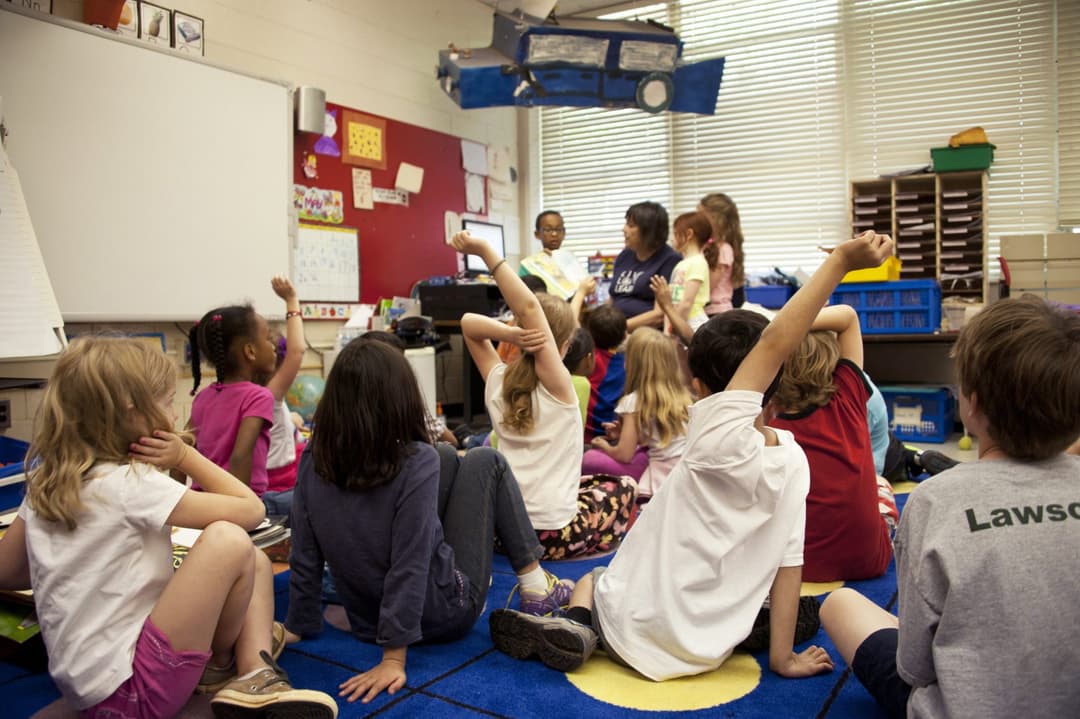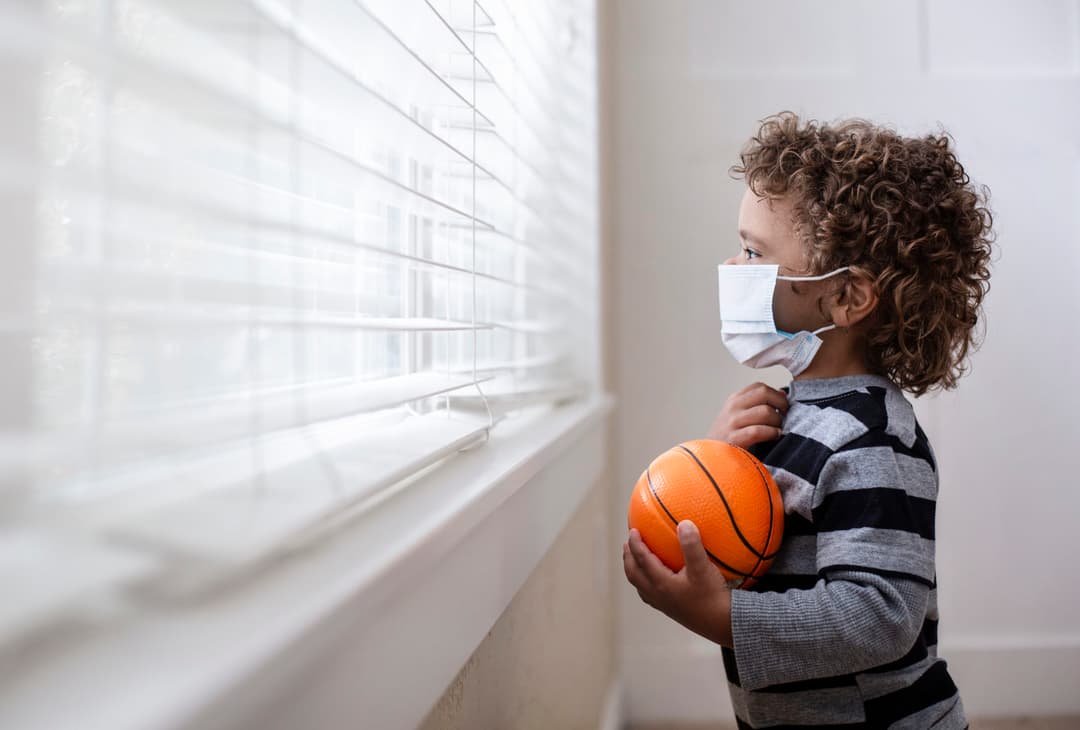Dr. Lanissa Freeman on Supporting Special Education Students
Apr 13, 2020
Christy talks with Special Education Director, Dr. Lanissa Freeman, about how Southfield Public Schools is meeting the needs of special education students and their families when it comes to distance learning during the COVID-19 crisis as well as reintegration plans for June.
TRANSCRIPT
Christy McDonald School districts around the area are trying to come to terms with their plans for the rest of the school year, and they’re also really taking into consideration special education students because there are a lot of different parameters that they have to take into consideration. Joining me now to talk about that is Dr. Lanissa Freeman. She is the Director of Special Education for the Southfield Schools. Dr. Freeman, it’s good to see you.
Dr. Lanissa Freeman, Director of Special Education, Southfield Public Schools Good to see you as well. Thank you for having me.
Christy McDonald Can you give us an idea of what the conversations are going on right now when you have to take into consideration the amount of special education students that are out there and the needs are so very different from kids who are sitting in a regular classroom and they can log on to a computer?
Dr. Lanissa Freeman, Director of Special Education, Southfield Public Schools Absolutely. Well, the first thing we told our staff was to make sunshine calls. You know, sunshine calls just to simply connect, connect with those families, find out what their needs were to make sure they were just feeling okay. You know, the Coronavirus has hit us all very hard, but knowing that families are home with students that, you know, are not going to respond to the typical, here’s your log in and you’re all set to go. So we’re using really a mixed medium, just trying to make sure we’re reflective and meeting the needs of each of our families. So that’s been very important to us. So we started our quest with sunshine calls, and that helped us to really get to know the individual families, not just the students, but just to make sure we were meeting their needs.
Christy McDonald Could you talk a little bit about, you know, support that comes from home and the parents, because it’s now up to a lot of parents to be able to do some of this work. So once you made those sunshine calls and checked in and to see how everyone was doing, then how do you sit and say, this is what we need to do for each one of these students and it’s federally mandated that they are afforded education. And there are certain benchmarks and parameters that a district has to meet?
Dr. Lanissa Freeman, Director of Special Education, Southfield Public Schools Well, it’s a collaborative effort. The good thing about being in special education is that we’re never alone. We work as a team and a parent. The parents are very much a part of that team. So just finding out exactly what they needed, making sure that if they need it equipment that we were responsive to that. So we issued over 900 Chromebooks in our districts so that parents could have access and also making sure that they had a balanced approached, meaning that we were going to connect with those families via a phone call. Just having a schedule created for each of our families was very different for each unique family. So getting some consistency, developing a routine with them was very critical. So our parents connected. Our teachers basically reached out to our parents to make sure tha what type of schedule? Making sure that there was some flexibility in it. But a consistent, structured routine is what we were going for and helping our families realize that that was going to be a key component to helping your students during this time.
Christy McDonald And as you navigate going forward and taking a look at some of the some of the achievement marks that the students will be reaching or that they have to that they have to be reaching, how do you deal with that? How do you deal with IEPs? Do the schedules get changed? I’m sure you’re navigating all of that.
Dr. Lanissa Freeman, Director of Special Education, Southfield Public Schools Yes. Well, we’re continuing with our IEP meeting. So we’ve held a lot of all those IEP meetings virtually, and they’ve gone quite well. I mean, parents are very grateful for that opportunity to connect with the staff, to talk about the educational planning for your students, but also to develop just basically a distance learning plan. You know, let’s find out what is working well. Find out what other supports you might need. So we still sent home individual packets to students, making sure that parents had access to materials. We also have our therapist that are connecting with our families to use regular household items, you know, creating a maze with laundry baskets and building forts to make sure that kids have that physical therapy, that they needed and getting the entire families involved. So each family is different. Each student is different. And our approach really is about meeting not only the student’s needs, but the needs of that family. So that has been very, very critical.
Christy McDonald I’ve talked to a number of administrators from various districts across the area over the last couple of weeks. And I think that there’s this acknowledgement that even if school looks more normal in September and we all go back to school, that there is going to be, we’re going to have missed out a little bit, that there is going to have to be some repetition, there’s going to have to be a step back and say, you know, we may not have been able to move as forward as we’d like to. And we’re gonna have to go over some things. Is that something that you’re taking into consideration? As well as look, we might have to take a couple of step backs in September to to move forward?
Dr. Lanissa Freeman, Director of Special Education, Southfield Public Schools Absolutely, Christy. I’m so glad you asked that, because we’ve developed reintegration plans. So that means let’s talk about how did this virtual experience go, you know, getting parent input to find out what do we need to consider as we go back into our traditional setting? We need to think about some of the strategies that work really well, that perhaps we had to think outside of the box. How are we going to develop an action plan so that we can come back and understand that our work will forever be changed by this pandemic? And how are we going to move it forward? So we’ve developed reintegration plans that we’re already thinking about for June, like when we start collecting that data and really analyzing what has happened during these weeks. We have eight weeks left of the school year, but that’s a lot of time. So we want to make sure that we’re beginning to plan what is it going to look like when we return to the buildings? How are we going to not only support students to get re-acclimated to coming to school, but what other supports do we need to consider as we approach that day? So we are hopeful that September will be the beginning of a school year. But in actuality, we just don’t know.
Christy McDonald You know, I think it’s funny that you talk about the disruption to education and I mean disruption in it in a global sense that we might be looking at a shift in education that we haven’t, that we have never seen, and that we will be teaching our kids in a different way going forward. You know, this disruption, how would you characterize and all the work in the years that you’ve been working with students at the time that we’re in right now and the importance of education and connection, especially when it comes to our special education students?
Dr. Lanissa Freeman, Director of Special Education, Southfield Public Schools Yes, well, it’s so critical that we get it right. We’re literally writing the blueprint for pandemics or any national disaster. So it is so important that we take this opportunity to understand the unique needs of our families and get it right. We don’t have anything to go on. We haven’t had a pandemic in our country for over 100 years. And that time they didn’t even have special laws on the books. So now that we have this unique time, it’s so important that we develop a blueprint for others to follow. If this should ever happen again. But you know, that individual support is what we’re really holding on to and the collaborative spirit of our team. We have had paraprofessionals, psychologists, social workers, teachers, principals, all hands are on deck. And they know my model is boots on the ground. Find out what parents need so that we can help them. But also being sensitive to the need that some of our parents are sick, some of our students have been hospitalized. We’ve lost staff members. So it’s very important that we remember that compassion over compliance. We’re really taking a look, a hard look at what families need and knowing that they could change every day. We’re hearing about losses. We’re also hearing about recoveries. But that also changes our work because some of our families are just trying to make it. Just trying to get through. And as we continue this this work, we’re finding that every day is different. Every week has been different. But being responsive to their needs is what we’re finding is the most important. And that’s why we’re consistently communicating with our families to find out what’s happening. We’re having virtual parent trainings. We’re having virtual parent meetings, just trying to make sure that they see our faces so they hear a familiar voice. Our students, our teachers are reading stories, are paraprofessionals, are following up with phone calls just so that they know that we’re here and we’re in this together.
Christy McDonald I think what this time has also shown us is this greater appreciation for what our education system does, the teachers who interact with our kids every day and the difficulty of the job that now all parents are seeing with their children home right now. Dr. Lanissa Freeman, thank you so much for joining me and for getting this information out. And we will continue to stay in touch. So, we can see how things are going. And thanks for your dedication and for everything. Be well.
Dr. Lanissa Freeman, Director of Special Education, Southfield Public Schools Thank you. You as well.
Stay Connected
Subscribe to One Detroit’s YouTube Channel.
Catch the daily conversations on our website, Facebook, Twitter, and Instagram @detroitperforms
Related Posts
Leave a Reply
Your email address will not be published. Required fields are marked*
